Cheat Sheet: Teaching Methods | Child Development and Pedagogy for CTET Preparation - CTET & State TET PDF Download
| Table of contents |

|
| Definitions of Teaching |

|
| Teaching Skills |

|
| Teaching-Learning Process |

|
| Methods of Teaching and Learning |

|
| Teaching Strategies |

|
| Micro Teaching |

|
Teaching is a structured process that fosters behavioural changes by shaping students’ thoughts, emotions, and actions. Beyond knowledge transmission, it builds character, critical thinking, and creativity. Effective teaching involves strong communication, continuous assessment, and adaptability to diverse learning styles, with educators mentoring students toward intellectual curiosity, ethical values, and problem-solving skills.
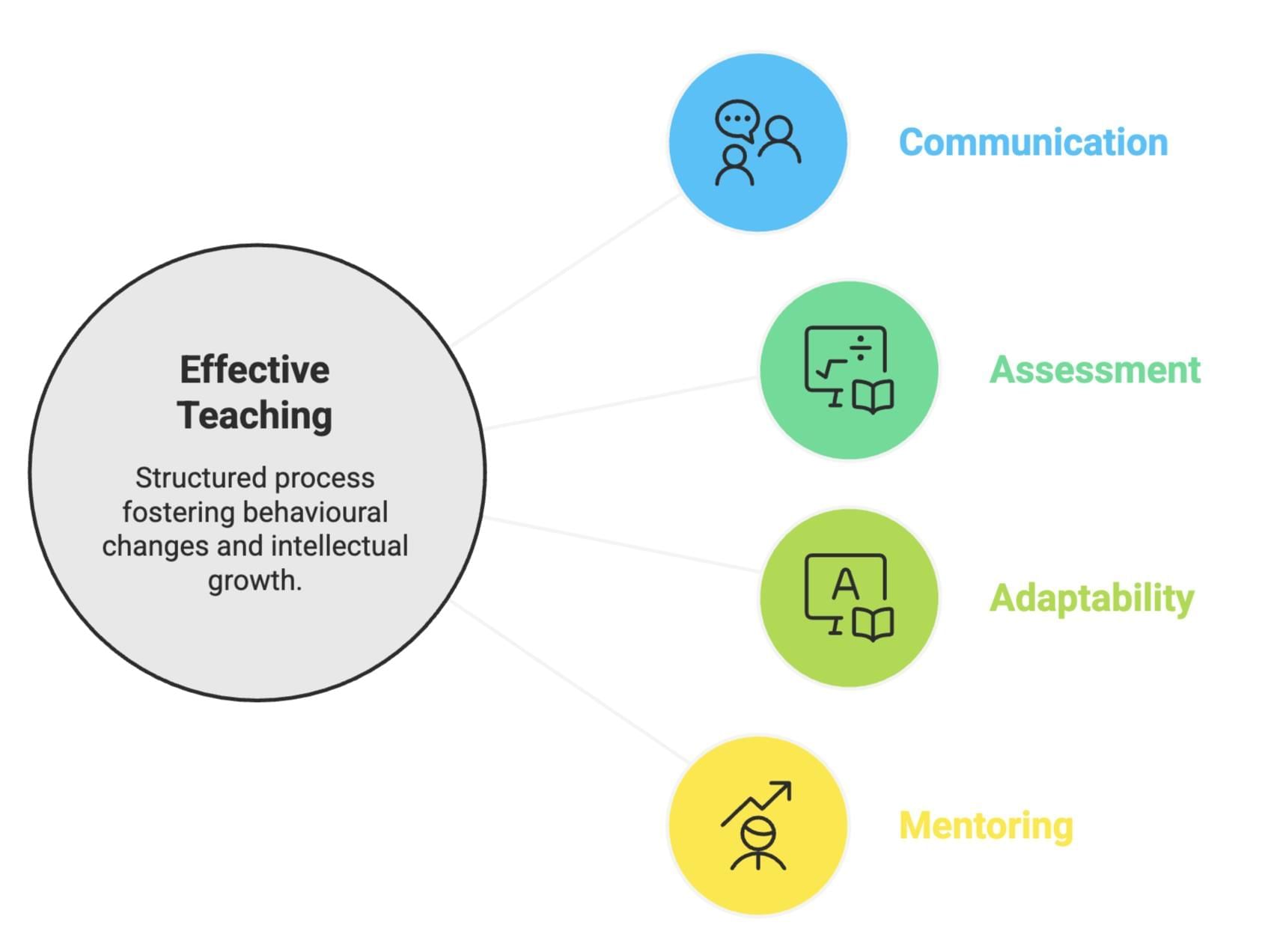
Definitions of Teaching

Teaching Skills
According to N.L. Gaze, "Teaching skills are specific instructional techniques and strategies used by a teacher in the classroom to enhance learning." Essential skills include:
- Stimulus Variation: Changing teaching methods to maintain student engagement.
- Set Induction: Introducing lessons to capture interest.
- Closure: Summarising lessons to reinforce understanding.
- Silence and Non-verbal Cues: Using pauses and body language effectively.
- Reinforcement: Encouraging desired behaviours.
- Asking Questions: Promoting critical thinking through questions.
- Probing Questions: Deepening student responses.
- Divergent Questions: Encouraging creative thinking.
- Higher-Order Questions: Fostering complex reasoning.
- Attending Behaviour: Showing active listening and engagement.
- Illustrating Concepts: Using examples to clarify ideas.
- Lecturing Effectively: Delivering clear, engaging lectures.
- Planned Repetition: Reinforcing key points strategically.
- Completeness in Communication: Ensuring clear, comprehensive delivery.
Teaching-Learning Process
Teaching is an interactive engagement between teachers and students, fostering cognitive skills and behavioural changes (learning). Teaching and learning are interconnected, continuous processes in education.
Principles of the Teaching-Learning Process
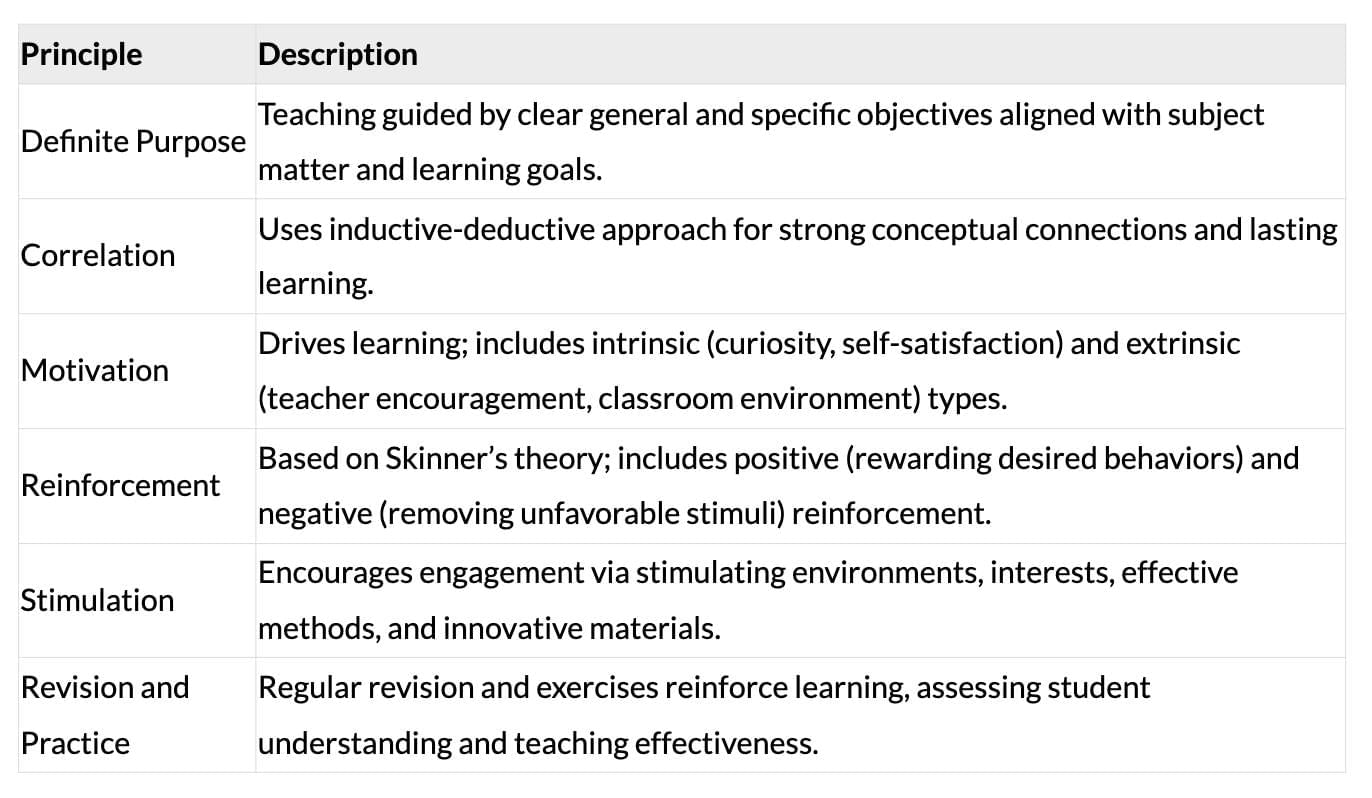
Methods of Teaching and Learning
Teaching methods vary by subject matter and teacher’s approach, categorised into four types:
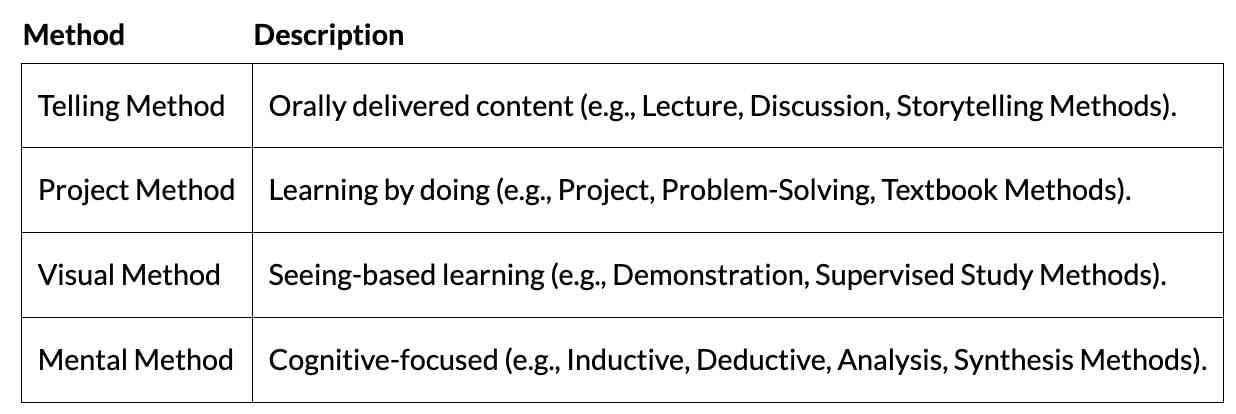
Teaching Strategies
A teaching strategy is a well-organised set of instructional methods to achieve learning objectives, akin to strategic planning in warfare. Strategies are divided into Autocratic and Democratic types.
A) Autocratic Teaching Strategy
Traditional, teacher-controlled methods with limited student freedom:
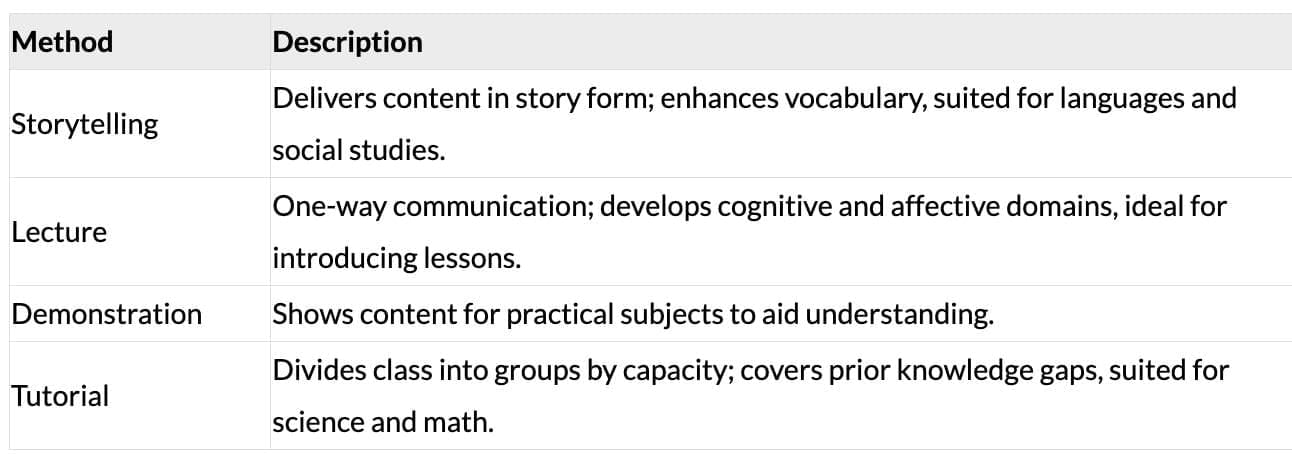
B) Democratic Teaching Strategy
Encourages student expression and interaction; teacher acts as a guide:
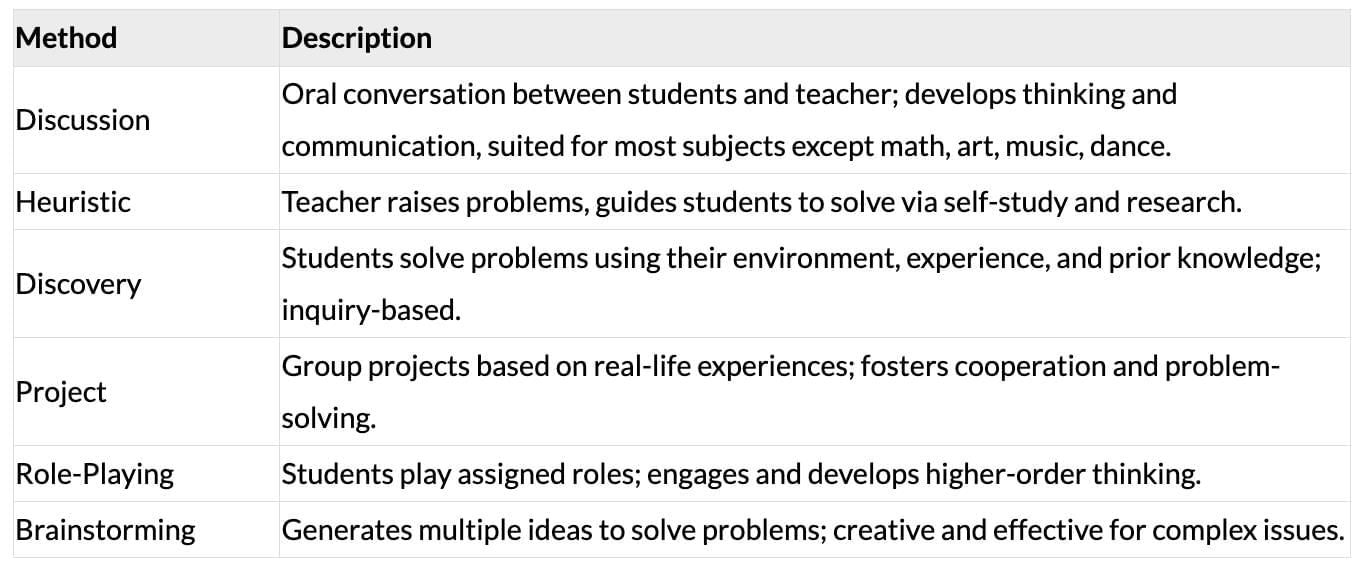
Micro Teaching
Micro teaching, introduced by Dwight W. Allen at Stanford University, is a scaled-down teaching encounter focusing on class size and duration. It refines teaching skills, boosts confidence, and allows experimentation with feedback.
Principles of Micro Teaching
- Authentic Teaching Experience: Real classroom exposure on a smaller scale.
- Focus on a Single Skill: Each session targets one specific teaching skill.
- Controlled Environment: Structured for systematic improvement.
- Emphasis on Feedback: Constructive feedback refines techniques and effectiveness.
|
70 videos|154 docs|42 tests
|
FAQs on Cheat Sheet: Teaching Methods - Child Development and Pedagogy for CTET Preparation - CTET & State TET
| 1. What are the key components of the teaching-learning process? |  |
| 2. What are effective teaching strategies that can enhance student learning? |  |
| 3. How does micro-teaching improve teaching skills? |  |
| 4. What are some common methods of teaching and learning? |  |
| 5. Why is understanding teaching skills important for educators? |  |















